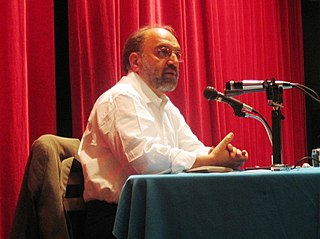A Quote by Bertrand Russell
The knowledge exists by which universal happiness can be secured; the chief obstacle to its utilization for that purpose is the teaching of religion. Religion prevents our children from having a rational education; religion prevents us from removing the fundamental causes of war; religion prevents us from teaching the ethic of scientific cooperation in place of the old fierce doctrines of sin and punishment. It is possible that mankind is on the threshold of a golden age; but, if so, it will be necessary first to slay the dragon that guards the door, and this dragon is religion.
Quote Topics
Age
Causes
Causes Of War
Chief
Children
Cooperation
Door
Dragon
Education
Ethic
Exists
Fierce
First
Fundamental
Golden
Golden Age
Guards
Happiness
Having
Knowledge
Mankind
Necessary
Obstacle
Old
Our
Our Children
Place
Possible
Prevents
Punishment
Purpose
Rational
Religion
Scientific
Secured
Sin
Slay
Teaching
Threshold
Universal
Us
Utilization
War
Which
Will
Related Quotes
What our view of the effectiveness of religion in history does at once make evident as to its nature is--first, its necessary distinction; second, its necessary supremacy. These characters though external have been so essential to its fruitfulness, as to justify the statement that without them religion is not religion. A merged religion and a negligible or subordinate religion are no religion.
We are nearly always longing for an easy religion, easy to understand and easy to follow; a religion with no mystery, no insoluble problems,no snags; a religion that would allow us to escape from our miserable human condition; a religion in which contact with God spares us all strife, all uncertainty,all suffering and all doubt; in short, a religion without a cross
A prince who loves and fears religion is a lion who stoops to the hand that strokes or to the voice that appeases him. He who fears and hates religion is like the savage beast that growls and bites the chain, which prevents his flying on the passenger. He who has no religion at all is that terrible animal who perceives his liberty only when he tears in pieces, and when he devours.
We do not accept a religion because it offers us certain rewards. The only thing that a religion can offer us is to be just what it, in itself, is: a greater meaning in ourselves, in our lives, and in our grasp of the nature of things...a religion exists for us only if, like a piece of poetry, it carries us away. It is not in any sense a 'hypothesis.
Much that was called religion has carried an unconscious attitude of hostility toward life. True religion must teach that life is filled with joys pleasing to the eye of God, that knowledge without action is empty. All men must see that the teaching of religion by rules and rote is largely a hoax. The proper teaching is recognized with ease. You can know it without fail because it awakens within you that sensation which tells you this is something you’ve always known.
I think there in a great deal to be said for religious education in the sense of teaching about religion and biblical literacy. Both those things, by the way, I suspect will prepare a child to give up religion. If you are taught comparative religion, you are more likely to realise that there are other religions than the one you have been brought up in. And if you are if you are taught to read the bible, I can think of almost nothing more calculated to turn you off religion.
Yet Buddhism is four hundred years older than Christianity, and if it's not a universal religion I don't know what a universal religion is. There's also a strong focus on selectionism and the notion that religion plays a functional role in the evolutionary process. But religion is dysfunctional all the time, as well as functional. It's not so simple.
The incipient magician will confess his faith to a universal religion. He will find out that every religion has good points as well as bad ones. He will therefore keep the best of it for himself and ignore the weak points, which does not necessarily mean that he must profess a religion, but he shall express awe to each for of worship, for each religion has its proper principle of God, whether the point in question be Christianity, Buddhism, Islam or any other kind of religion.


































